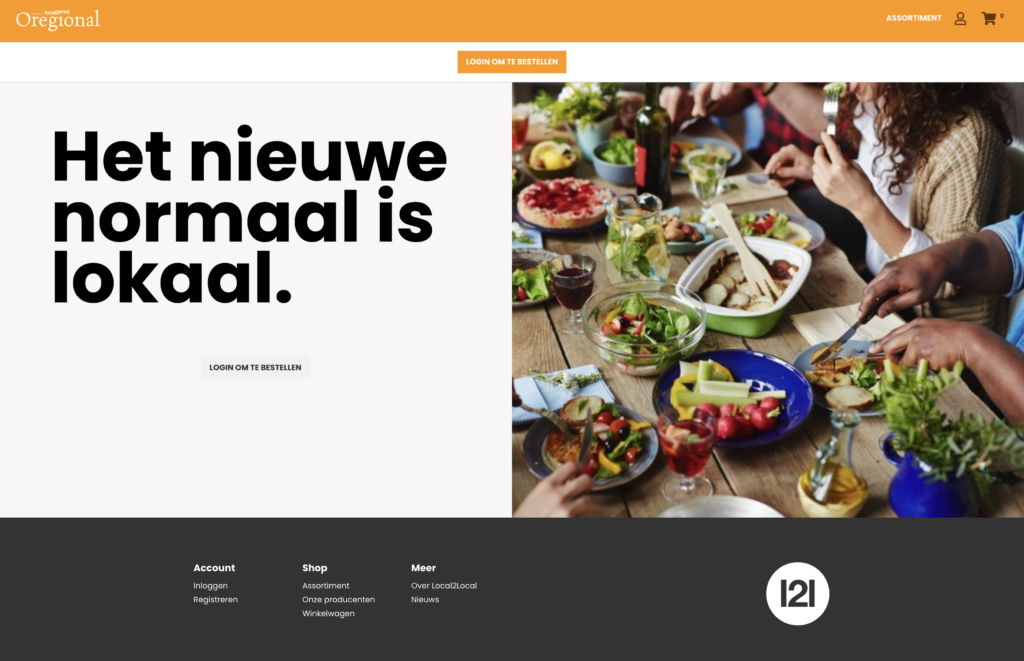Oregional, Powered by Local2Local
In recent years, Local2Local has been connecting with leaders in the short food chain to work together to market regional products to nationwide buyers. In January 2023, Local2Local (Utrecht), Oregional Cooperative (Gelderland e.o.), Boeren van Amstel (NH), ProeVkantoor (NH) and Vereniging Flevofood (Flevoland) joined forces in the Dutch Short Chain Collective, to significantly increase sales of regional products.
The collaboration explicitly responds to the increasing demand for tasty, healthy and sustainably produced local food. The partners have on average been active in the short chain for more than 10 years and they are frontrunners in the transition of our food system. The farmer collectives represent over 400 producers with thousands of products and hundreds of business customers are already connected.

Oregional: Powered by Local2Local
The collective is taking important steps with a shared data environment, combined logistics and joint concept development. The first success is a fact: Oregional is now directly linked to Local2Local’s data and trading platform (developed by parent company Amped). This not only opens up the beautiful products of Gelderland to surrounding/overlapping regions, but also enables combined, and thus more efficient logistics, better delivery frequencies (6 days p/week) and service.
In this regard, Oregional and the partners of the Short Chain Collective Netherlands are also pulling together in the Data Value Center Agri & Food Short Chain project, where data and IT tools are of great value in supporting actors in the growing local and regional food chains.
Structural supply
The short food chain has gained much relevance and maturity in the dominant world of catering, hospitality and retail over the past year. With growing awareness about the need for a future-proof and socially responsible food system, this development in the short chain is a huge boost for serving clients such as our partner Eurest (Compass Group), to structurally incorporate the rich food offerings of local farmers and producers into Eurest’s kitchens and restaurants.

New business models and scaling up
In addition to sales, our interregional partnership aims to realize new business models while maintaining short chain principles. This enables increased security of supply and diversity of products and customer groups. This creates important economies of scale that strengthen the development of robust short food chains and create new sales opportunities.
This is an important step in the development of robust regional food systems. Thus, knowledge is developed and networks are formed, based on area-oriented cooperation. The parties thus see important developments coming together, which can be jointly tackled within area-oriented cooperation. A good example of this is the rollout of a robust, regional and regenerative food system in the Amsterdam Metropolitan Area.